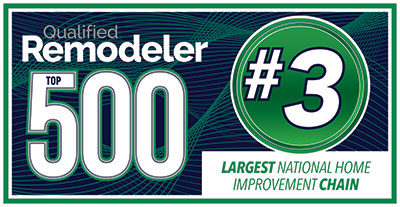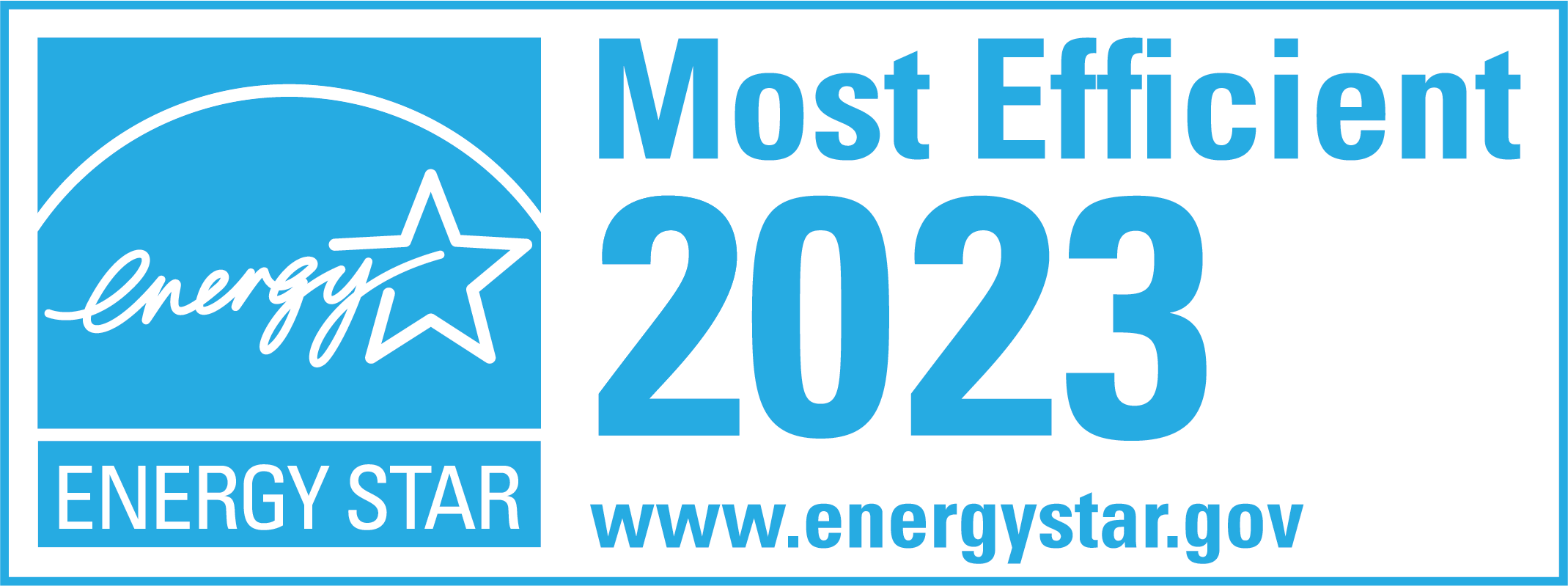Are Vinyl Windows Energy Efficient?
When selecting new windows for your home, energy efficiency is vital. Energy-efficient windows can significantly reduce your home’s energy consumption, lowering your energy bills and reducing your carbon footprint. One of the materials that homeowners may consider for their windows is vinyl, but are vinyl windows energy efficient? This article will help you understand vinyl windows’ energy efficiency and why they may be the right choice for your home.
We only offer vinyl windows at Window Depot USA of Dallas, Texas. It’s fair to say we’re biased and strongly believe vinyl windows offer the best value in replacement windows. However, we will do our best to be objective. We are writing additional articles about aluminum and wood windows as well.
Understanding energy efficiency in windows
Before diving into vinyl windows’ energy efficiency, let’s first look at what energy efficiency means when it comes to windows.
What is energy efficiency?
Energy efficiency refers to the ability of a window to prevent heat transfer between your home’s interior and exterior. When a window is energy efficient, it will help to keep your home cooler in summer and warmer in winter, reducing the strain on your HVAC system and, thus, your energy consumption. This saves you money on your energy bills, reduces your carbon footprint, and helps conserve natural resources.
One important thing to note is that energy efficiency is not just about the window itself but also how it is installed. Even if it is energy efficient, a poorly installed window will not perform as well as a properly installed one.
Factors affecting window energy efficiency
Several factors determine a window’s energy efficiency, including the window’s framing material, the type of glass used, and how the window is installed. Let’s take a closer look at each of these factors:
Framing material
The material used for the window frame can affect its energy efficiency. Vinyl, wood, and fiberglass frames are all excellent energy-efficient choices, as they provide good insulation and are resistant to heat transfer. On the other hand, aluminum frames are less energy efficient, as they conduct heat easily and can lead to energy loss.
Glass type
The type of glass used in a window can also affect its energy efficiency. Double-pane and triple-pane windows are more energy efficient than single-pane windows, as they provide an extra layer of insulation. Low-emissivity (Low-E) glass is also a good choice for energy efficiency, as it reflects heat into the room, keeping it warmer in winter and cooler in summer.
Installation
Installing a window is just as important as the window regarding energy efficiency. A poorly installed window can lead to air leaks and energy loss. Proper installation includes sealing gaps and cracks around the window frame, using insulation, and ensuring a good fit.
By considering these factors and choosing energy-efficient windows, you can save money on your energy bills and contribute to a more sustainable future.
The composition of vinyl windows
Windows are essential to any building, providing light and ventilation while playing a pivotal role in energy efficiency. Now that we understand energy efficiency well let’s take a closer look at vinyl windows.
Materials used in vinyl windows
Vinyl windows are made of a type of plastic called polyvinyl chloride, also known as PVC. This material is durable, lightweight, and resistant to moisture and rot, making it an ideal choice for windows. Other materials, such as stabilizers, pigments, and plasticizers, may also be added to improve the performance of the windows. For example, stabilizers help prevent the PVC from breaking down over time, while pigments can create a wide range of colors.
One of the advantages of using vinyl for windows is that it is a highly sustainable material. PVC can be recycled and reused, reducing waste in landfills. In addition, the production of vinyl windows requires less energy than other types of windows, further reducing their environmental impact.
How vinyl windows are constructed
Most vinyl windows are constructed by combining multiple pieces to form a single window frame. This process creates a tight, weather-resistant seal that helps to prevent energy transfer. The welding process involves heating the vinyl until it becomes soft and pliable, then pressing the pieces together to create a strong bond. Once the vinyl has cooled and hardened, the resulting frame is strong, durable, and resistant to warping and cracking.
In addition to the frame, vinyl windows include other components such as glass, hardware, and weatherstripping. The glass used in vinyl windows is typically double or triple pane, with insulating gas between the panes to improve energy efficiency. Hardware such as locks and handles are often made of metal, while weatherstripping creates a tight seal around the edges of the window.
Overall, vinyl windows are an excellent choice for anyone looking to improve the energy efficiency of their home or building. With their durable construction, a wide range of styles and colors, and low environmental impact, vinyl windows are a wise investment for any property owner.
Comparing vinyl windows to other window materials
Several factors must be considered when choosing the right windows for your home. One of the most important factors is the material of the window frame. Vinyl windows have become increasingly popular due to their affordability, energy efficiency, and low maintenance requirements. However, other materials, including wood, aluminum, and fiberglass, should be considered.
Vinyl vs. wood windows
Wood windows are often considered the gold standard of energy-efficient windows. They offer excellent insulation and can be customized to fit any home style. However, wood windows can also be more expensive than vinyl. In addition, wood requires more maintenance than vinyl, which is practically maintenance-free. Wood windows must be painted or stained regularly to protect them from the elements and prevent rotting or warping. Vinyl windows, on the other hand, require no painting or staining and can be easily cleaned with soap and water.
Vinyl vs. aluminum windows
Aluminum windows are lightweight, durable, and affordable. They are often used in commercial buildings and high-rise apartments. However, they are not as energy-efficient as vinyl windows. Aluminum conducts heat and cold quickly, making it unsuitable for areas with extreme temperatures. In addition, aluminum windows can be prone to condensation, leading to mold and mildew growth.
Vinyl vs. fiberglass windows
Fiberglass windows offer excellent insulation and durability and are energy efficient. They are also resistant to warping, rotting, and cracking. However, they are more expensive than vinyl windows and may not be the best option for homeowners on a budget. In addition, fiberglass windows are not as widely available as vinyl windows, making them harder to find.
Overall, vinyl windows are a great option for homeowners looking for an affordable, energy-efficient, low-maintenance window. However, it’s important to consider all available options before making a final decision.
Energy performance of vinyl windows
Vinyl windows have become increasingly popular due to their energy efficiency and durability. They are designed to keep your home comfortable while reducing your energy bills. In this article, we will explore the various factors that affect the energy performance of vinyl windows.
Insulation properties
An essential factor affecting vinyl windows’ energy efficiency is their insulation properties. Insulation can be achieved using several methods, including gas fills, spacers, and low-emissivity (low-E) coatings. Gas fills, such as argon or krypton, are used to fill the space between the panes of glass. This helps to reduce heat transfer through the window. Spacers are used to separate the panes of glass, creating an insulating barrier. Low-E coatings are applied to the glass to reflect heat into the room, keeping it warmer in the winter and cooler in the summer.
When selecting vinyl windows, it is essential to consider the insulation properties. Look for windows with a high R-value, which measures the resistance to heat flow. The higher the R-value, the better the insulation properties of the window.
Air leakage and sealing
Vinyl windows are designed with an airtight seal that helps to prevent energy transfer. It is essential to ensure that the installation is carried out by a professional installer to ensure the seal is airtight, preventing any air leakage. Air leakage can cause drafts and increase energy bills, as your heating and cooling systems must work harder to maintain a comfortable temperature.
In addition to proper installation, regular maintenance is also crucial to ensure that the seal remains airtight. Check the seal regularly for any cracks or gaps and replace it if necessary.
Solar heat gain coefficient
The solar heat gain coefficient (SHGC) measures the heat that enters a room through a window. The lower the SHGC value, the better the window prevents heat from entering your home. Vinyl windows with a low SHGC value can help keep your home more comfortable during summer.
When selecting vinyl windows, look for windows with a low SHGC value if you live in a hot climate. This will help to reduce the amount of heat that enters your home, reducing your reliance on air conditioning systems.
In conclusion, vinyl windows are an excellent choice for homeowners looking to improve the energy efficiency of their homes. When selecting vinyl windows, consider the insulation properties, air leakage and sealing, and solar heat gain coefficient to ensure you get the most energy-efficient windows for your home.
Additional features that enhance energy efficiency
Regarding energy-efficient windows, many features can help reduce your energy bills and keep your home comfortable year-round. In addition to vinyl frames, double or triple glazing, low-E coatings, and gas fills, there are several other features that you may want to consider.
Insulated frames
In addition to insulated glass, you can opt for vinyl frames filled with insulation. This helps to reduce the transfer of heat and cold through the frame, making your windows even more energy-efficient. Insulated frames are particularly important in extreme temperatures, where energy loss can be a significant problem.
Warm-edge spacers
Warm-edge spacers are another feature that can help improve your windows’ energy efficiency. These spacers are placed between the glass panes and help reduce heat transfer by separating the glass panes and creating a thermal barrier. This can help to prevent condensation and reduce the risk of mold growth.
Tinted glass
Tinted glass can also be a great option for energy-efficient windows. Tinted glass helps to reduce the amount of solar heat gain that enters your home, which can help to keep your home cooler in the summer months. Additionally, tinted glass can help to protect your furniture and flooring from fading due to UV exposure.
Window films
If you’re looking for an affordable way to improve the energy efficiency of your windows, window films may be a good option. These films are applied to your windows’ surface and can help reduce heat transfer and block UV rays. Additionally, window films can provide an added layer of security and privacy.
By choosing windows with these additional features, you can help to reduce your energy bills and keep your home comfortable year-round. Whether you opt for insulated frames, warm-edge spacers, tinted glass, or window films, many options are available to help you create the perfect energy-efficient windows for your home.
Conclusion
When it comes to energy efficiency, vinyl windows are an excellent option. They are affordable, low maintenance, and energy-efficient. By understanding the factors that affect the energy efficiency of vinyl windows, you can choose the right windows for your home, reducing your energy consumption and saving you money on your energy bills.
If you are looking for a window replacement company in Dallas Fort Worth Texas metroplex, we would love to talk pricing and availability. Please call us at 214-399-9592 to get started.






